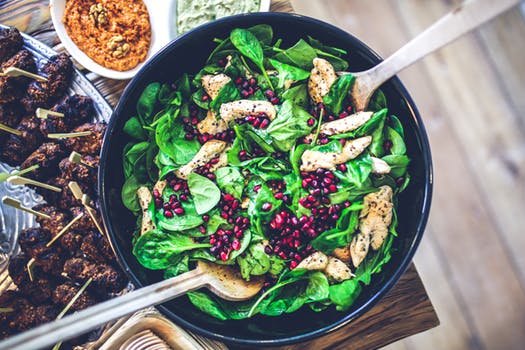Anti-Blood Clot Plants
Platelets are implicated in the pathology of coronary heart diseases and strokes. One of the mainstays treatments of coronary heart diseases and ischemic brain strokes is the anti-platelets. Natural anti-blood clot plants can be healthy and provide natural protection and decrease the incidence against heart attacks and strokes.
Can our food act as natural anti-blood clot plants
SAFFRON
it can help weight loss by suppressing the appetite and also improve mood and prevent depression. also, Saffron contains antioxidants substances that help prevent and fights cancer. Additionally, Saffron can reduce premenstrual syndrome symptoms PMS.
Best Fruit Diet for Prevention of Lung Cancer
GARLIC
This medicinal herb had been narratively used by veterinarians to treat venous thrombosis in horses in the French literature a long time ago. (1)
Diabetes and Kidney, Heart attacks and strokes
GREEN TEA Anti-blood clot plants
This magical tea improves your physical performance and mental intellectual functions as well. By increasing fat burn and fights certain cancers as cancer breast; prostate and colorectal cancers; Green tea tops the herbal medicine.
St. JOHN WORT
Surprisingly, St. John’s Wort showing efficacy in mild to moderate depression as well as hot flushes and mood changes in menopause. Recent scientific research concludes that St. John’s wort showed significantly less side effects compared to Prozac. Fortunately, St. John’s wort is natural herbal supplement. You do not require a prescription and you can buy it at a health food store.
GINGER anti-blood clot plants
Well-known home remedy Ginger is commonly used for motion sickness, morning sickness, intestinal colic, gas and gaseous distension, diarrhea, irritable bowel syndrome (IBS), nausea, nausea caused by cancer treatment, nausea caused by HIV/AIDS treatment, nausea and vomiting after surgery, as well as loss of appetite. Ginger may be effective for pain relief from rheumatoid arthritis (RA), osteoarthritis, menstrual pain, and other conditions. Topical Ginger has soothing effects to the skin to relief pain from burns or insect bites.
GINKGO BILOBA
Known by improving brain functions; Ginkgo Biloba reduces dementia risk and boost mental and intellectual performance. Ginkgo Biloba contains anti-oxidants that prevent and fight cancers, coronary heart diseases. Having important anti-inflammatory activity; Ginkgo Biloba reduces arthritis and inflammatory bowel diseases.
GINSENG anti-blood clot plants
It boosts brain cognitive and intellectual Function; Ginseng is rich in anti-oxidants that prevent and fight cancers. Additionally, Ginseng stimulates the immune system functions and fights fatigue and malaise and gives you energy and boost physical activity.
GUAVA Anti-blood clot plants
Being rich in antioxidants and anti-inflammatory components also Guava can be of benefit.
BARBERRY
A native herb in Europe and Asia and is wildly grown in Canada to Pennsylvania. In traditional Chinese medicine, barberry was mentioned more than 3000 years ago to have important antimicrobial, anti-vomiting; anti-pyretic, and anti-pruritic properties. Scientifically, barberry may offer healthcare benefits as an anti-hypertensive agent and play a prominent role in apoptosis in the treatment of liver cancer mice. These herbal medicines have phytochemical components, which are directly related to the anti-platelet (Anti-blood clot plants activity of the plant, such as flavonoids,
Diabetes and the Kidneys, Heart Attacks and Strokes
CURCUMINS
Long ago, Curcumins has been used since long in Southeast Asia as an Indian spice as treatment for stomachache, wounds, and joint problems in Ayurvedic medicine. Turmeric is also famous as anti-blood clot plants. Turmeric itself has been widely used for its antioxidant, antimicrobial, anti-inflammatory, wound healing and anti-cancer properties. (2)
CAMMOMILE
In addition to improve sleep quality and decrease the long-term inability to sleep; Camomile is rich in antioxidants and anti-inflammatory components. Camomile is among anti blood clots plants as well as promoting the digestive system health and prevent gases, distension and diarrhea. This curative herb can improve blood glucose levels; reduce blood pressure and cholesterol levels which is reflected by reduced incidence of coronary heart diseases. (3)
LICORICHE
It can improve peptic ulcer heartburn and suppress the growth of the culprit bacteria H.Pylori. Additionally, Licoriche has anti-stress and anti-anxiety effects. It can provide you with relaxation and relief. In fact, Licoriche also stimulates the respiratory system to produce clean healthy phlegm and get rid of old sticky infection mucous.
RED CLOVER
Being rich in antioxidants; anti-inflammatory properties; red clover can prevent cancers , mal-digestion, high cholesterol levels, cough and bronchitis. Traditionally; Red clover has been used for symptoms of peri-menopause such as hot flashes; for breast pain ; and for premenstrual syndrome (PMS). Additionally; Topical application of Red Clover to the skin to cure skin cancer, skin sores, burns, and chronic skin diseases including eczema and psoriasis. (4)
CATECHINS
They are chemical phenolic compounds. Catechins are very abundant in tea, green tea, cocoa and berries.
Catechins are amongst oxindole alkaloids has been shown to prevent blood clots in blood vessels, dilate peripheral blood arteries, slow heart rate, and lower cholesterol levels in the blood.
These chemicals have immunostimulant, anti-microbial, anti-tumor, anti-inflammatory, anti-allergic, anti-ulcer, anti-oxidant, and adaptogen effects.
The oxindole alkaloids are thought to be responsible for the plant’s most commonly sought-after therapeutic properties in the treatment of inflammatory illnesses. The anti-inflammatory efficacy was evaluated in vitro and in animal tests.
is thought to be a strong immune system booster and a powerful antioxidant, however the mechanism of action of these rainforest herbs is unknown.
Some analysts appear to believe that these distinct alkaloids are responsible for the plant’s ability to treat cancer and prevent viral infections.
The immune-stimulating qualities of cat’s claw allow it to combat infections and boost the rate at which the immune system eliminates cold viruses, as well as work against germs associated with gastritis and peptic ulcers. These plant compounds are claimed to be able to enhance the activity of T cells, a type of white blood cell that can seek down and kill virus-infected and tumor cells.
Catechin is commercially available and can be obtained as a supplement in a variety of dose forms. For successful effects, they include capsules, tinctures, pills, and extracts. Although it appears to be a potent herb, it is critical to examine its side effects as well as the possibility of unpleasant and allergic reactions.


